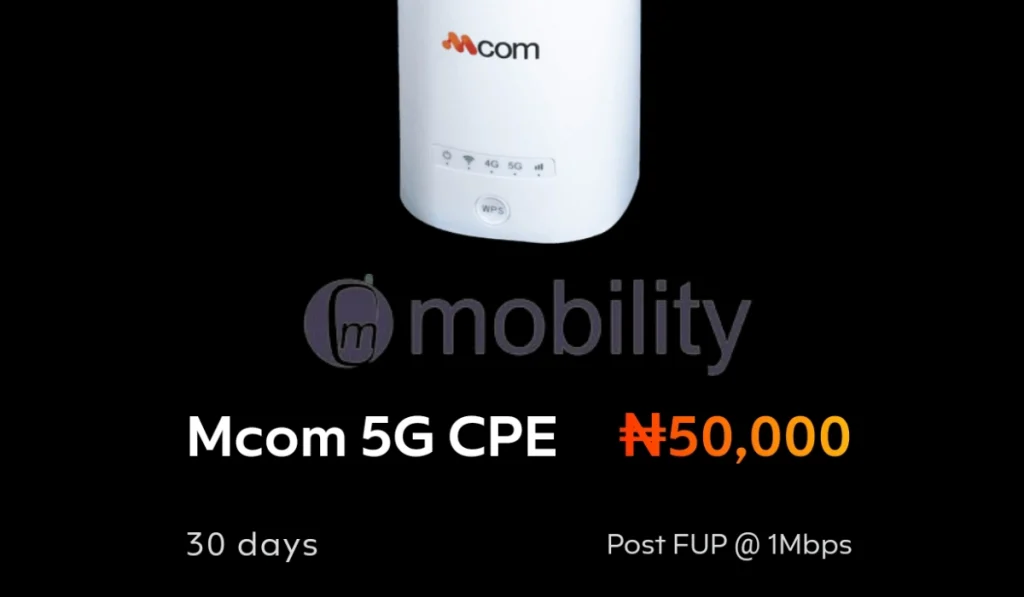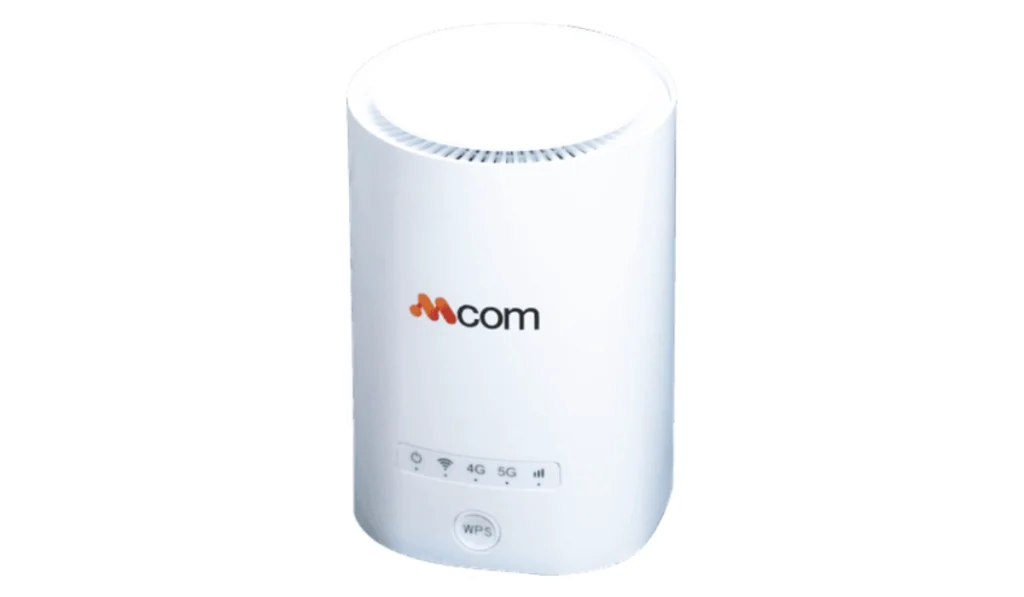After securing a 5G licence form the Nigerian Communications Commission in February 2022, new telecom operator, Mafab has finally launched Nigeria’s first standalone 5G network and announced routers and data plans in January 2024, two full years after.
This has been a long time coming. It is exciting to hear that unlike the non-standalone 5G networks that MTN and Airtel launched, Mafab, trading as Mcom, has built a proper 5G network – one that does not rely on 4G LTE infrastructure but has a 5G core. That means a more robust network, better latency, faster speeds, and more.
Table of Contents
What is a standalone 5G network?
A standalone 5G network is a network that uses a 5G core and a 5G radio access network, rather than relying on existing 4G infrastructure. This allows for improved performance, reliability, security, and efficiency of 5G services. Some of the benefits of a standalone 5G network include:
- Higher download and upload speeds
- Lower latency and more responsive networks
- Less battery drain and longer battery life
- Better 5G coverage and indoor signals
- Enhanced end-to-end encryption and security
- Ability to connect more devices simultaneously
- Support for new cellular use cases such as ultra-reliable low latency communications (URLLC) – the ability to transmit and receive data with very short delays, typically in the order of milliseconds or microseconds. It enables new applications that require high reliability and responsiveness, such as autonomous driving, remote surgery, industrial automation, and virtual reality.
To use a standalone 5G network, you will need a compatible device that supports 5G New Radio (NR) and 5G core standards. This can be a router or a smartphone. Find out more about standalone 5G networks.
Why the 1Mbps speed cap?

So, why exactly is Mcom placing a 1Mbps speed cap on their service? Why build a standalone 5G network that should offer even better speeds than non-standalone networks and then cripple the experience so badly with such a speed cap?
As a latecomer to the playing field and with more limited coverage than the competition, Mafab/Mcom ought to be rolling out competitive and attractive services to woo subscribers over to their 5G network. Offer faster download and upload speeds, offer banging data promos, etc. Not this.
This all smells like what certain smaller 4G network operators did some years back – and have remained in the background till today. Why would you put a V8 engine in a car and then limit its maximum speed to 50 km per hour?
Or perhaps there has simply been a miscommunication on the part of Mafab. Let’s hope this is the situation, in which case a clarification will be in order. Or I have misinterpreted what I saw and I am merely drumming up dust.
Unexciting data plans

Not only is there supposedly a creepy-crawly speed cap on Mcom 5G services, the data plans are also ho-hum.
Why would anyone want to spend ₦4,000 to get 10GB data on Mcom 5G, when on MTN, that same ₦4,000 will get you 12GB data + 2GB night data + 25 minutes talk time? The difference in value is massive. Add that measly 1Mbps speed cap and even the devil will not touch it with a 10-foot pole.
The most affordable Mcom data plan is a 500MB data bundle for ₦350 only and with a 24-hour validity. On MTN, ₦350 gets you double that data volume. There really isn’t anything exciting about Mcom’s 5G data offerings.
One would expect a 5G core network operator to be bragging about faster speeds and lower latency than the competition, while offering tasty bundles, even if only as launch promotions to drive subscriber uptake.
5G routers and SIM cards

You can pick up Mcom 5G routers for ₦50,000 a piece. Which aligns with what the competition is offering. The routers come with a 5G SIM in them (and 140GB of data), but Mcom has not said anything about the cost of acquiring a SIM card, for those who want to use their compatible smartphone with the Mcom standalone 5G network.
One other possible explanation for the FUP speed cap is that after the subscriber has a used up the 140GB data, the speed is throttled to 1Mbps. Which would be fair, and in which case my concerns about a speed cap are out the window and in the trash can.
Mcom 5G coverage
On to coverage, Mcom says its network is present in Lagos, Rivers, FCT, Enugu, Kano, and Kaduna. Six “states”. But that coverage is quite limited for now, which is not unexpected. For example, in Lagos, Mcom 5G is currently present in only areas in Alausa, Ojota, Surulere, Lagos Island, and VI.
Without a 4G or legacy GSM mobile network for subscribers on the move to fall back on, this also explains why Mcom might not be selling SIM cards now. Buy an Mcom 5G router for use in your location and leave it there. Moving the router elsewhere can mean no coverage for you. Using an Mcom SIM card in your smartphone right now will mean being without coverage in many places when you are on the move.
If it interests you, read up more about the differences between standalone 5G networks and non-standalone 5G networks. Follow our detailed timeline of Mafab 5G licencing and network rollout.
Are you getting an Mcom 5G router and service? Or have you already obtained it? What do you think of the long-awaited Mafab/Mcom 5G rollout?

2 thought on “Mafab rolls out standalone 5G network with 1Mbps speed cap somewhere”